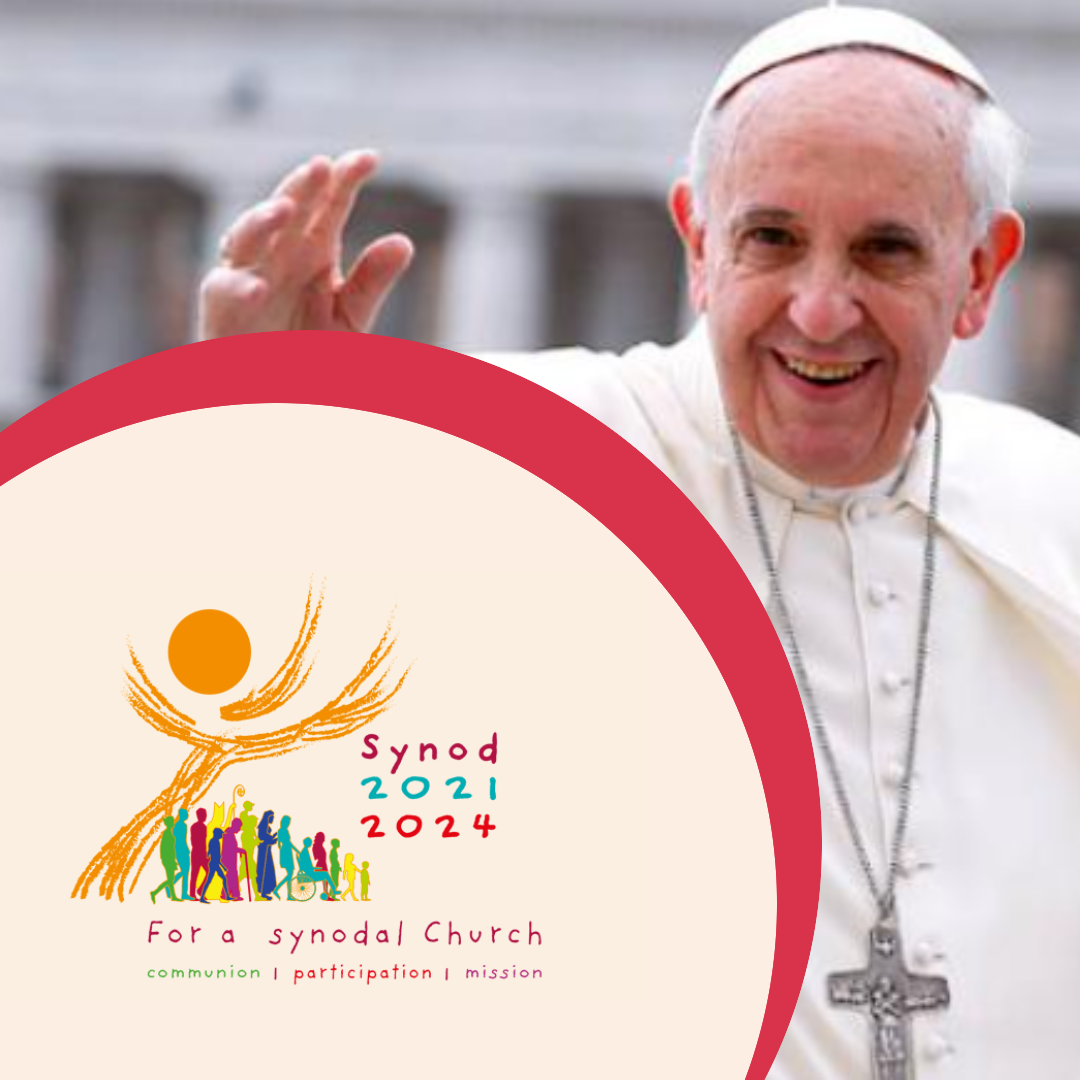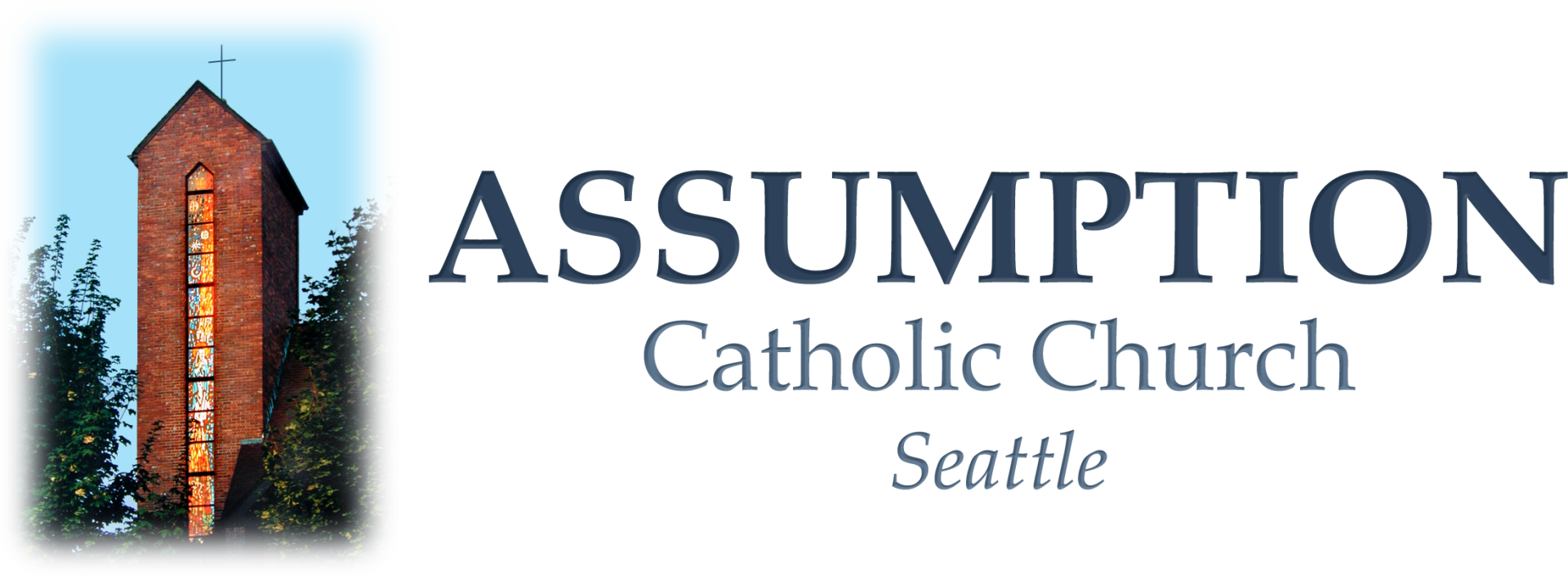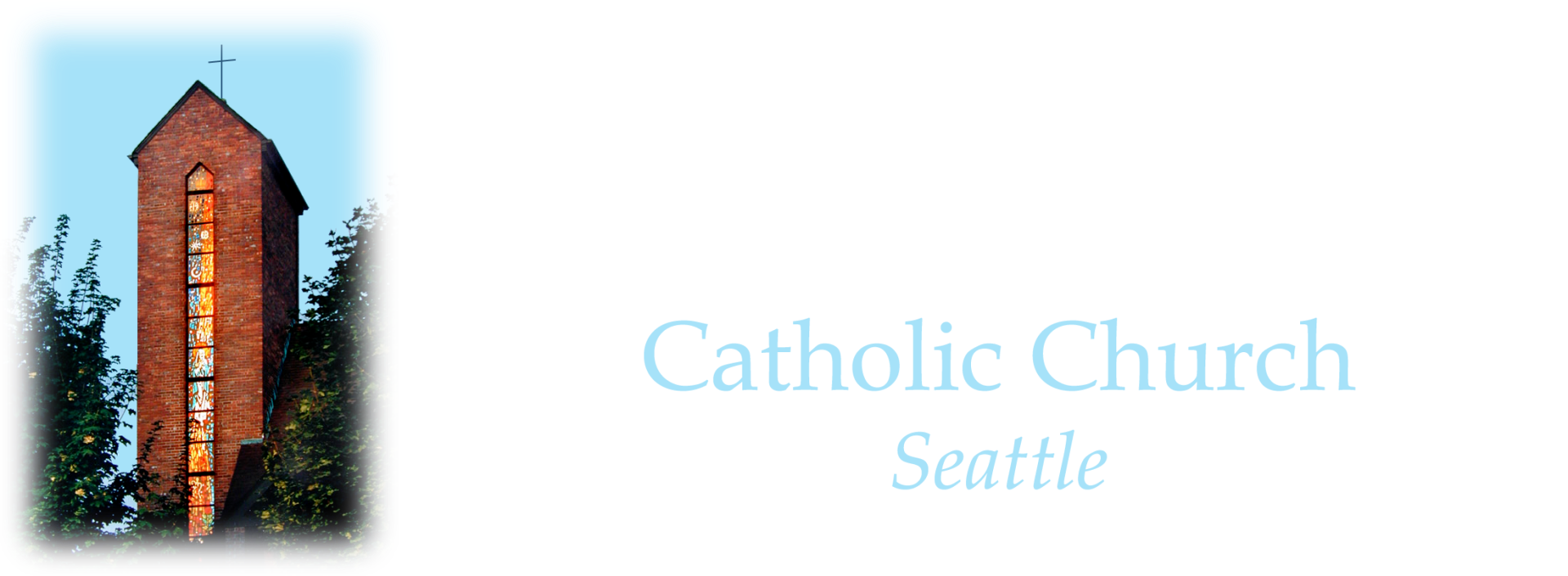6201 33rd Ave NE
Seattle, WA 98115
(206) 522-7674

Synod Update October, 2022
By MK Rodgers
One of the goals of the synod is to listen to the many voices of the church in order to understand how well we are journeying together and to discern where the Holy Spirit is calling us as Church.
While the diocesan phase of the synod concluded this past summer, the synod has carried on. In fact, this week signals the end of a 2 week meeting where an international team of 35 women and men (lay, religious, and 2 bishops) has been prayerfully reading all national syntheses and writing yet another synthesis for use during the upcoming Continental phase (beginning late Fall and concluding late March). The fruit of the continental phase will form the foundation for the Instrumentum Laboris (working document) for use during the Universal Phase of the Synod in Rome (October 2023).
The regional synthesis for WA, AK, ID, MT, and OR can be found here:
https://www.usccb.org/resources/Region%20XII%20Synthesis%20Final.pdf
Regional syntheses for all geographic regions and organizations represented as an additional region in the United States can be found here:
https://www.usccb.org/resources/2021-2023-synod-regional-syntheses
The United States National Synthesis can be found here:
https://www.usccb.org/resources/US%20National%20Synthesis%202021-2023%20Synod.pdf
Responses to substantive questions from the Archdiocese of Seattle
regarding the local synod consultation at Assumption Parish
Submitted May 6, 2022 by Mary Kaye Rodgers
What were common or important themes that emerged from the listening sessions?
Over six listening sessions, the following high-level themes emerged:
1. The shortage of priests and what should be done about it. These discussions touched on the ordination of women as priests and deacons, the married priesthood, and the laity as a “baptized priesthood.”
2. The problems of clericalism and the hierarchical structure of the Catholic Church. The lack of “servant leadership”, the perception of “pray, pay, obey”, and the ongoing scandals and cover-ups were discussed as reasons why the current models of leadership and structure are ineffectual as the Church moves forward.
3. The exclusionary nature of the Catholic Church. The Church needs to meet people where they are. The Church is seen from the outside as judgmental, not welcoming, rule-driven not faith-driven.
4. The Church’s (mis) treatment of marginalized communities. The denial of sacraments and general bias against LGBTQIA+ people is a scandal. There are also issues with the treatment of divorced and lapsed Catholics, and others who are turned away from sacraments and services.
5. Divisions in the Church in the United States driven by politics. The involvement of U.S. Catholic bishops in political matters is dividing the Church and causing harm. This is particularly concerning around issues like abortion and contraception.
6. Reduction in participation in mass and parish life, particularly by younger people. We recognize that COVID has been a compounding factor, but numbers were declining before COVID. We are losing even young people who attended Catholic schools and were raised by active Catholic parents.
Which particular stories or real-life experiences were shared related to the way our church currently journeys together?
An older woman, a self-identified “cradle Catholic,” talked about her confusion as a child, being “petrified” about going against the rules she was taught in religious education. She told a story about her parents, also Catholic, choosing to attend a wedding at a different Christian church at a time when doing such a thing was seen as forbidden. The lesson she took from her parents’ choice was that maybe not every “rule” was the best, and that “loving one’s neighbor” regardless of their religion was more important than capricious rules about stepping foot in other houses of worship.
A middle-aged man talked about becoming Catholic after a 10-year journey, because he was drawn to the Church after Vatican II “flipped the script” and recognized that “every baptized person is a priest of Christ” (referencing 1 Peter 2:5,9). While not all are called to the vocation of ministerial priesthood, all are called to go out and serve. He finds this inspirational and worthy of pursuit in opportunities for lay ministry in the Church.
A mother talked about her child’s sexuality and how she works to reconcile her belief that her child is a child of God, “and if God doesn’t make mistakes, how can someone say my child’s identity is wrong?” and her faith. She struggles with the Church’s treatment of LGBTQIA+ people. She said that our pastor has been greatly supportive and encouraging, and that his ministry has been very important to her remaining active in the Church.
What dreams, desires, and aspirations for our Church were expressed by participants?
We dream of a loving, open, accepting Church where all are welcome. We desire a Church where the lessons of Jesus about faith, truth, forgiveness, and meeting people where they are come before hierarchy, clericalism, and finances. We aspire to a Church centered on the Gospels, the sacraments, faith, mercy, service, openness, and love.
In practical terms, we agree that increased attendance at Mass and participation in the sacraments is something we would all like to see. We hope that we will see more young people and young families in the pews and active in the parish community. We want to see more diversity in our parish, and the Church as a whole. We need to find ways to be more visible and welcoming to our neighbors in the community. We aspire to actively serve not just our parish but those in our community who have true need. We understand that we must address the Church’s stance on many issues if we want young people to be an active part of the church, as many of them have strong disagreements with the current thinking of Church leadership.
What challenges or opportunities do these reflections pose as we journey together?
“Pope Francis has challenged us to tackle justice issues in the world” as one participant said, “but it feels like U.S. leadership is ignoring his directives.” This sentiment was heard in varying degrees and words across all listening sessions. Another participant said that “it seems like the Church is on the wrong side of history and refuses to see it.”
The fundamental frustration heard across all listening sessions is that the Church as an institution is not listening to the people, and that the hierarchy is caught up in making and enforcing rules by whatever means they can. We see “some parts of leadership [that] seem to be committed to undoing the work of Vatican II,” which is “deeply discouraging and deeply frightening,” even with the rare bishop who stands against them. This does not include Pope Francis, who seems to be “walking a tightrope” (according to a participant) in trying to create a “different Church” as he said in remarks on this synod. The leadership of Pope Francis is “inspirational” and “hopeful”; he is “life giving and life affirming” in his ministry. It is not enough to “overcome divisiveness” as another participant said, “we have to find common ground.”
While we have grave concerns about these issues, we also see hope in these discussions. As we find common themes developing, like the desire to focus on love, compassion, and inclusiveness, we are inspired to do the work necessary to move the Church forward and celebrate what it means to be Catholic in our daily lives and in the life of the Church, and to share that message with the wider world.
What did participants share related to the question of “what steps does the Holy Spirit invite us to take in order to grow in our journeying together”?
The Holy Spirit invites us as the lay body of the Church to become more active in all aspects of the Church, including leadership and ministry. In order to address the ongoing shortage of priests, the vast majority agree that the Church must at least consider the ordination of women as priests and/or deacons, as well as consider allowing for married priests. In the meanwhile, opportunities for lay ministry and lay leadership need to be created and encouraged at all levels of the Church.
The Holy Spirit leads us to recognize that the Church is the whole people of God. The focus of the Church should be on the people, and encouraging all people of the Church to serve one another and all of humankind, following the example of Christ. We need those with a true servant’s heart - as exemplified by Pope Francis - to guide this change and lead by example. We seek accountability from those in positions of trust, and forthrightness with regard to financial, sex abuse, Indigenous residential homes, and other Church-related scandals.
We are inspired to build a more welcoming Catholic Church. Our “competition” is not Protestantism or even agnosticism/atheism - it is the spirituality that people are thirsty for and are finding everywhere else. People who find peace and enlightenment in meditation, time in nature, study, and the like, are thirsty for the love of God. We need to find a way to evangelize by living the Gospel. We must meet people where they are and we must accept them for who they are. We cannot build a welcoming church without recognizing the harm we have done to many marginalized communities, particularly LGBTQIA+ people, but also divorced Catholics, lapsed Catholics, and others who feel unheard, and then dismantling the systems and traditions that continue those harms.
In discussion regarding the politicization of the Catholic Church, particularly in the United States, there was general agreement across all sessions that the Church has become too involved in political issues and that there should be a reconsideration of how the Church interacts with government and politics. “It feels like the only thing they [the U.S. bishops] see as evil is abortion, they’ll strike a deal with any devil if they say they will end abortion.” While the vast majority of the listening session participants said that they do not agree with/believe in abortion, they do see the current focus as a distraction from “the seamless garment” of life, and that there are needs that are going unaddressed or unmet because of that focus. “Education and birth control are what will end abortion” one participant said, while another said “most Catholics use birth control, that’s why we don’t see families with six or eight children anymore, the Church needs to understand that.” Overall, there was agreement that the Church, particularly in the United States, needs to take a significant look at its political involvement and focus on abortion and contraception.
Synod
Pope Francis has called us as a Church to a “synodal journey.” Catholics across the world will be coming together in a universal process of listening in preparation for the 2023 Synod of Bishops in Rome. To begin this synodal journey, Pope Francis has called for listening sessions in parishes worldwide beginning in October. Each diocese in the United States will then present a summary of input to the USCCB.
Pope Francis invites all the baptized around the world to journey together in a global listening process called, “For a Synodal Church: Communion, Participation, and Mission.”
This global consultation process will provide guidance for the Church to discern “the signs of the times and interpret them in the light of the Gospel” (GS,4).
This process must grow out of the experiences of those in our Archdiocese, and it must reflect the realities of our current time and place. I am here to listen and learn, not to answer. In reflecting on this call to synodality, we are reminded of what God tells us through Jeremiah: If we call to God, he will respond with great things—things far “beyond the reach of our knowledge” (Jeremiah 33:3). Please prayerfully consider becoming a part of this ministry for the greater good of our community and Church.
Read the article in Northwest Catholic by clicking the button below
Assumption Catholic
Church
6201 33rd Ave NE
Seattle WA 98115
Phone: 206-522-7674
Fax: 206-522-6308
Email:
Fr. Oliver Ext. 305
Mass Schedule
Daily Mass:
Mon, Wed, Thurs, Fri | 9:00am
Weekend Mass:
Saturday Vigil | 5:00pm
Sunday | 9:00am
Reconciliation:
Saturday | 4:00-4:45pm
Or by appointment


